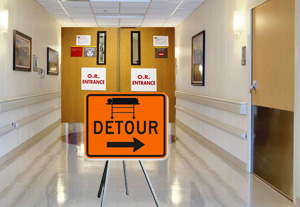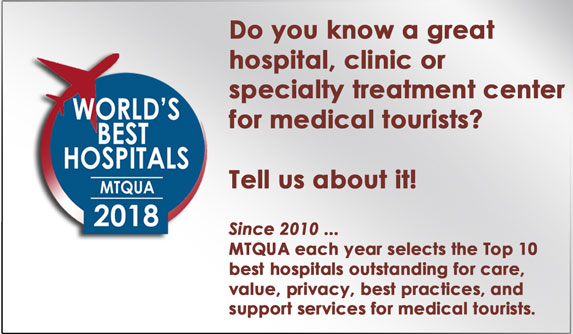 More medical tourists from the U.K. may be forced to go outside the country for cataract surgeries, weight loss surgery, and hip and knee operations.
More medical tourists from the U.K. may be forced to go outside the country for cataract surgeries, weight loss surgery, and hip and knee operations.
Nearly all of U.K.’s health care regions have purposely made waiting lists longer by restricting the number of procedures they perform.
9 out of 10 National Health Service Trusts said they have placed limits on many procedures they perform, making longer waiting lists for these procedures.
These growing waiting lists were recently was exposed through a “freedom of information” request in the U.K.
Non-urgent rationing encourages medical travel
The NHS Trusts claim they have reduced the number of these surgeries because they need to save money. By labeling these essential treatments as “non-urgent” or “of low clinical value,” they are able to divert financial resources to more urgent care needs.
Whenever financial resources are taken away from a group of treatments, patients turn to medical tourism to provide options in other countries.
British Health Minister Simon Burns was forced to respond to the news, stating that rationing treatment on grounds of cost was “totally unacceptable” and decisions to treat patients should be made on clinical grounds alone.
At the same time, Burns acknowledged decisions need to be made to limit or reduce certain types of treatment. This will help improve the bottom lines of budgets, re-allocate manpower or re-purpose physical space.
The NHS must find £20 billion (about US$30 billion) worth of efficiency savings by 2015 while it is still staggering from a failed central computer project that has ended up costing over £12 billion (almost $19 billion).
Canada makes wait times public
In Canada, the province of Ontario maintains a website that publicly lists the wait times not only for surgery but also for diagnostic imaging or emergency room care. Wait list information is searchable by procedure, hospital name or location.
The Ontario list is remarkably similar to that of the U.K. – listing procedures more in demand in aging populations.
Currently, reducing wait times for hip and knee replacements, cataract surgery, radiation oncology and cardiac services are a priority for the Ontario Ministry of Health and Long-Term Care, reducing the need for medical travel.
But weight loss surgery in Ontario has a wait list of 3 years, and is not included in the public list – apparently not an immediate concern of the Ontario government. Weight loss surgery travel by Canadians will continue.
Bed shortages
A different shortage, of patient beds, is the justification for another practice in the U.K. that was also recently made known.
UK doctors are putting tens of thousands of elderly hospital patients to death prematurely because they are difficult to manage or to free up beds, contends Professor Patrick Pullicino, a consultant neurologist and professor of clinical neurosciences.
Denying care to elderly
Speaking to the Royal Society of Medicine in London, he described a “death pathway,” known as the Liverpool Care Pathway (LCP), as a treatment protocol approved by the NHS and National Institute for Health and Clinical Excellence.
LCP, a method of looking after terminally ill patients, is used in hospitals across the U.K., and may include withdrawal of treatment including all nourishment and water. On average, LCP leads to death within 3 days.
Similar protocols exist in the U.S., Canada and other countries, for withdrawing treatment from terminally ill patients who are often in hospice and have very little time left to live. Nourishment and all medical treatment are withdrawn, and high levels of pain medication, often morphine, is given.
Pullicino said doctors had turned the use of this controversial ‘death pathway,’ meant for use when doctors believe when death is imminent, into the equivalent of euthanasia of the elderly. He claims it has become an assisted death pathway rather than a care pathway.
There are around 450,000 deaths in Britain each year of people who are in hospital or under NHS care. Around 29 per cent – 130,000 – are of patients who were on the LCP.

 >
>